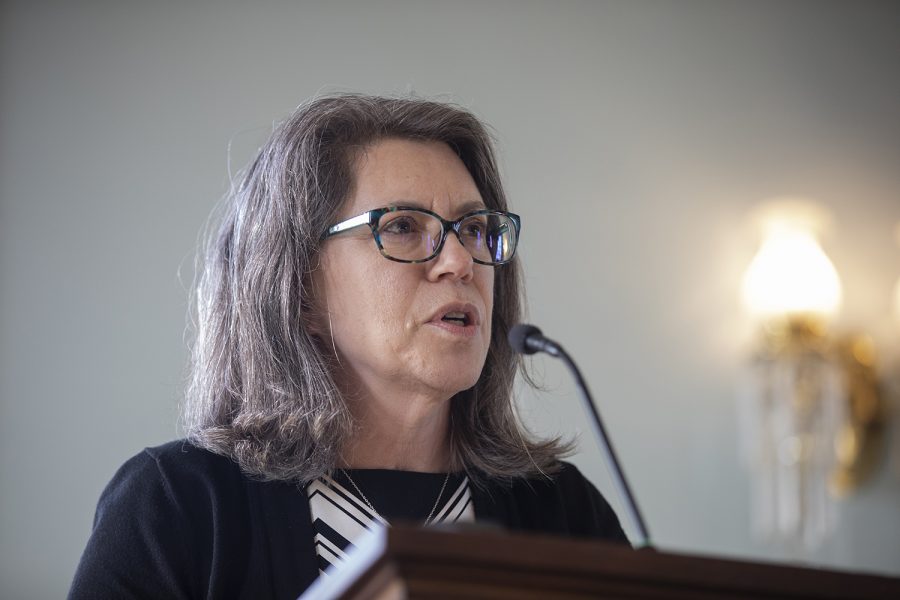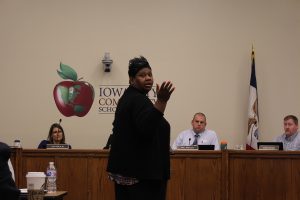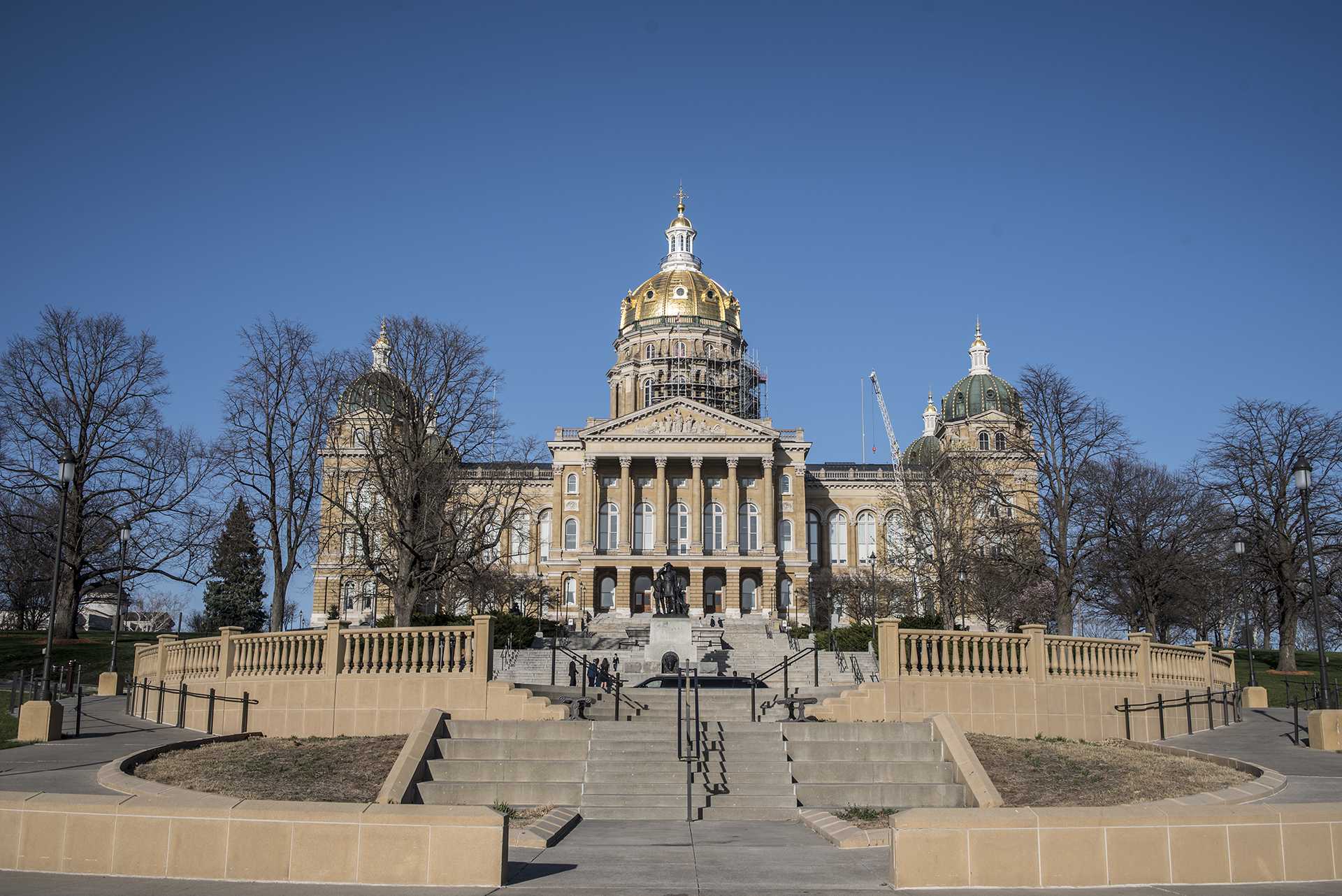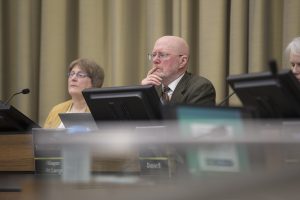UI Faculty Senate announces officer election results
The UI Faculty Senate for the 2019-20 academic year held its first meeting on Tuesday, listening to open remarks from their new president Sandra Daack-Hirsch and results of officer elections.
Faculty Senate President Sandra Daack-Hirsch speaks during the Faculty Senate meeting on April 23, 2019.
April 24, 2019
The University of Iowa Faculty Senate convened on Tuesday for the last time this year, ending with the departure of the current officers and welcome of incoming officers for the 2019-20 academic year.
Current Faculty Senate Vice President Sandra Daack-Hirsch will assume the role of president, and she thanked current president Russ Ganim and his predecessor Peter Snyder for their service.
Daack-Hirsch, an associate professor and director of the Ph.D. program in the College of Nursing, served as chair of a committee dedicated to lifting a sanction the national chapter of the American Association of University Professors placed on the UI to condemn the lack of shared governance on the 2015 UI presidential search — the process that led to the hiring of current UI President Bruce Harreld.
The search process was scrutinized because of then-presidential candidate Harreld’s private meetings with five regents and because of the lack of involvement from the UI community. The 21-member Presidential Search Committee was disbanded after semifinalists were selected.
The national chapter voted to lift the sanction in June 2018 after Daack-Hirsch aided in the creation of a document that specified best practices for the UI presidential-search process.
“We need to be in the forefront of finding solutions when issues are identified,” she said at the meeting.
She spoke about the importance of Faculty Senate and interdisciplinary cooperation among its members.
“This is an amazing opportunity to step out of your department and collaborate,” Daack-Hirsch said.
UI law Professor Joseph Yockey, the outgoing Faculty Senate secretary, was elected to serve as the next Faculty Senate vice president. UI chemistry Associate Professor Edward Gillan was the other candidate.
In his candidacy statement, Yockey said he believes faculty input and shared governance are essential to UI success.
“My time as your secretary taught me daily how important it is for the faculty’s voice to be heard on every issue affecting teaching, research, service, and compensation,” he said. “Making sure that this happens will be my primary objective as vice president.”
RELATED: UI Faculty Senate elects new leadership
A former officer, senator and councilor for the Faculty Senate, Yockey said he will strive to protect the interests of his colleagues through unwavering transparency, collegiality, and professionalism.
“These experiences taught me that we are stronger when we work together and communicate openly about the issues that matter for faculty, students, and staff,” Yockey said. “I will listen to your concerns and work with you to develop clear strategies to address them.”
Dentistry Professor Teresa Marshall ran unopposed and was elected as the next Faculty Senate secretary. In her candidacy statement, she pointed to her experience as a senator and councilor, along with work on several committees, as evidence she’s up to the job.
Marshall said her teaching in nutrition, evidence-based practice, and critical thinking have provided her with opportunity to cross departmental boundaries and curricula. Consequently, she said, she’s come to appreciate a dependence on learning each department’s strengths and barriers.
“As your Faculty Senate secretary, I [will] seek different voices representing the multiple perspectives within and among colleges,” Marshall said. “I [will] represent the collective faculty voice and strive for consensus.”
Marshall said the UI community faces significant challenges in the devaluation of higher education, limited revenue affecting faculty recruitment and retention, the new college economic-analysis funding model, and threats to academic freedoms.
“Our ability to address these challenges depends on shared governance — faculty engagement with university administration, staff, students, and the Board of Regents,” Marshall said. “Successful shared governance requires trust, transparency, and collaboration.”






